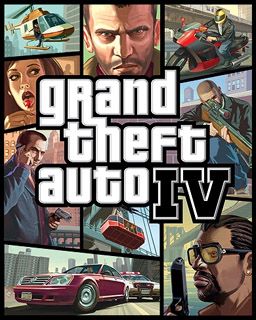The Wii U was developed, obviously, by Nintendo and Manufactured by Foxconn and will be the first 8th generation console.
It is said to be released on November 30th of this year. To pre-order from Amazon it will cost you around £249.00 for the basic white pack and a substantial amount more for the premium black pack at around £329.00 with a 32GB memory.
The Wii U is an upcoming video game console from Nintendo as the successor to the Wii. The system was unveiled during Nintendo's press conference at the Electronic Entertainment Expo 2011 on June 7, 2011, and is scheduled for released on November 18, 2012 in North America, November 30, 2012 in Europe and Australia, and December 8, 2012 in Japan. It will be the first entry in the eighth generation of video game consoles.
Nintendo stated that the Wii U supports 1080p graphics and has 2 GB of memory; 1 GB as system memory and the same for game memory. This is more than 20 times the memory of the Wii. The console will be released in two versions; a basic white version with 8 GB of internal storage, and a premium black version with 32 GB of internal storage, which includes stand and docks. An HDMI cable will be included with both versions. The Wii U features a new controller, called the Wii U GamePad, with an embedded touchscreen. The controller allows a player to continue playing games by displaying the game even when the television is off.
The console was first conceived in 2008, after Nintendo recognized several limitations and challenges with the Wii, such as the general public perception that the system catered primarily for a "casual" audience. With Wii U, Nintendo explicitly wishes to lure "core" gamers back. Game designer Shigeru Miyamoto admitted that the lack of HD and limited network infrastructure for the Wii also contributed to the system being regarded in a separate class to its competitors' systems, the Xbox 360 and PlayStation 3.
Nintendo is working with Netflix, Hulu Plus, Amazon Instant Video, and YouTube to bring streaming digital movie and television content to the Wii U. Nintendo has demonstrated that simple gestures can be used on the Wii U GamePad to transfer video content from the GamePad to the television screen. Users will also have the ability to switch from the television screen to the Wii U GamePad when watching videos.
Games like ZombiU, a first-person shooter survival horror video game from Ubisoft Montpellier, are to be released exclusively for the new Nintendo's Wii U console. In ZombiU the player can assume the roles of various survivors during the game. The game is a reboot of Ubisoft's first commercial game, Zombi. This seems to imply that Nintendo are aiming for a new audience - an older audience that Nintendo has failed to attract so far. The Wii is associated with a younger audience, with more family orientated games. However, after the reconsideration of the challenges of the first Wii console, Nintendo have decided to try to win over older gamers that would be more used to playing platforms like Xbox and PlayStation.
Up to this point the games available on launch/release of the Wii U are as follows;
Nintendo assures greater support for third-party games on the Wii U; during E3 2011 a handful of third-party titles were confirmed to be in development for the Wii U. During E3 2012, third-party titles were shown such as Darksiders II, Assassin's Creed III, Mass Effect 3, Ninja Gaiden 3: Razor's Edge, Batman: Arkham City Armored Edition, Just Dance 4, Madden NFL 13, as well as exclusives such ZombiU, Rayman Legends, Rabbids Land, Lego City Undercover, Scribblenauts Unlimited, and Bayonetta 2.
Some first-party games Nintendo has announced for the system include New Super Mario Bros. U, Pikmin 3, Nintendo Land, Wii Fit U, and Game & Wario.
Some first-party games Nintendo has announced for the system include New Super Mario Bros. U, Pikmin 3, Nintendo Land, Wii Fit U, and Game & Wario.



